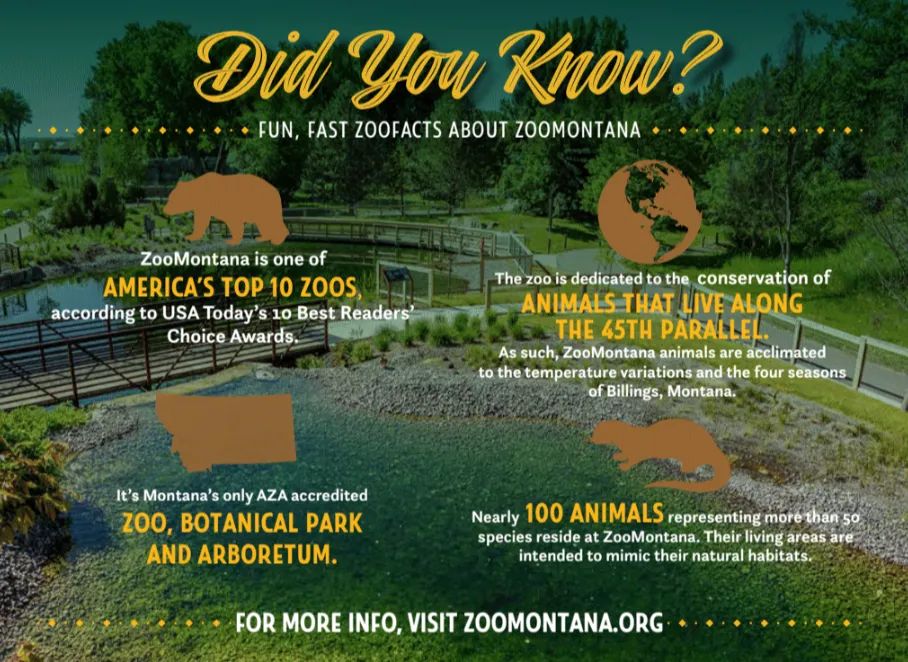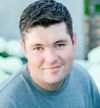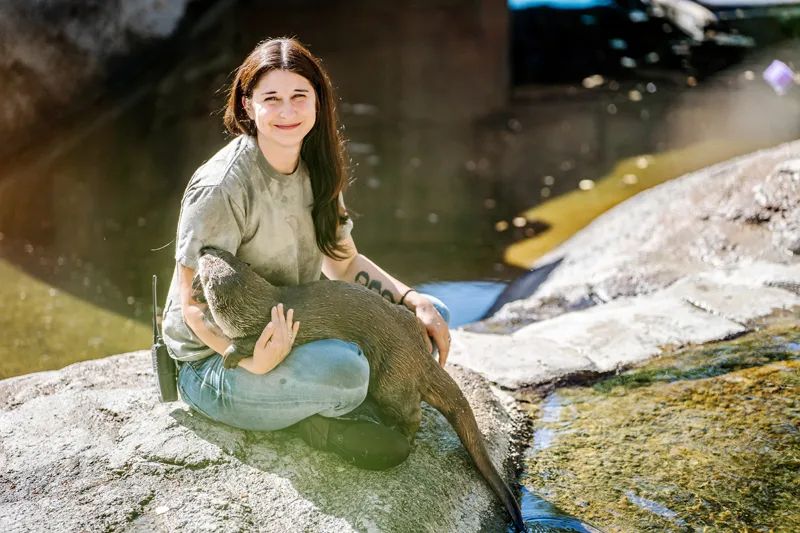
Unbreakable Bond
Billings woman becomes a surrogate (otter) mom
On a cold February morning in 2018, animal caretaker Amanda Atkinson was busy prepping breakfast for the bears at ZooMontana. Early mornings at the zoo were typically pretty quiet. That was about to change.
An incoming phone call interrupted the morning stillness. Allyson Dredla, a colleague working in the zoo’s Wetlands area, was talking excitedly on the other end of the line. When there is an unexpected animal health issue, Amanda is usually the first call. Allyson had just discovered four premature otter pups huddled together. The little critters weighed less than four ounces each.
The two women sprang into action to resuscitate and warm the pups, tiny enough to fit in the palms of their hands. They called ZooMontana Director Jeff Ewelt and zoo Curator Travis Goebel, knowing that difficult decisions were ahead.
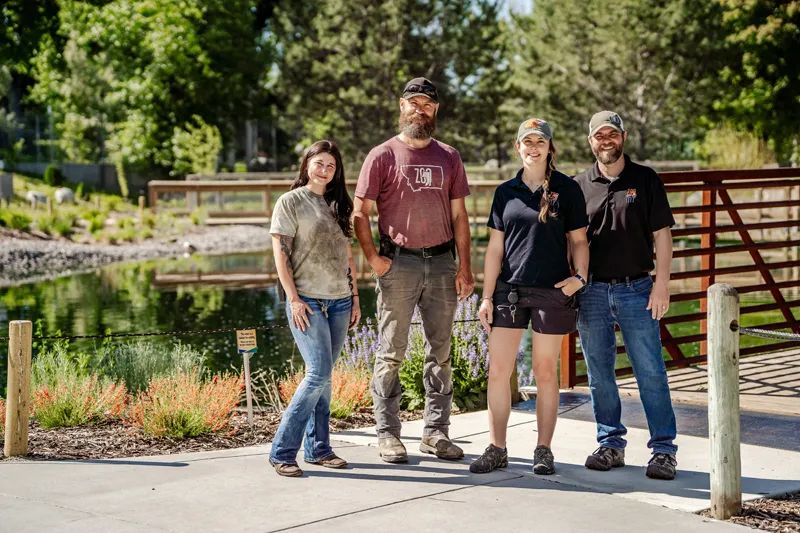
Surrogate Otter Mom
At the time, ZooMontana was home to Ben, an adult male otter, and Mia, an adult female otter. Together, they’d produced three litters of healthy pups. But this time, Mia had had no visible signs of pregnancy, and she wanted no part of raising those offspring.
"It is rare that an otter is orphaned or not accepted by their dam,” Amanda says, adding that otters are fierce parents, like a bear with her cubs. “In Mia’s case, I believe she didn’t produce any milk, which is why she didn’t take the kits.”
It was all hands on deck to figure out how to care for the little ones.
“Too be honest, I don’t quite remember what the discussion was, besides all of us in Jeff’s office with North American river otter manuals thrown everywhere,” Amanda says. “We had the babies in our sweater pockets to keep them warm and we made Travis drive everywhere in town looking for bottles, milk and Colostrum.” (Side note: Amanda says they now keep these things on hand.)
“Because mom had no interest, we knew hand-raising them was the only option,” Jeff says. “They needed round-the-clock care.”
Every day the pups lived, their chances of survival increased. Amanda ended up caring for two pups she named Sam and Frodo. Allyson cared for two she named Wade and Francis. The otter babies required feedings every few hours with a special formula administered in an infant-sized syringe. The pups went home with them at night and returned to the zoo with them each morning.
“Those two doted on those pups for months,” Travis says. “I’m so proud of them!”
Sadly, little Frodo succumbed to a kidney abscess. Eventually, Wade and Francis went to the West Yellowstone Grizzly and Wolf Center, where they continue to live their best otter lives. Little Sam was left without a sibling or a mama to emulate as he matured. He craved constant attention. By necessity (or maybe it was fate), Amanda became Sam’s surrogate mom.
"My house was chaotic!” Amanda remembers. Sam slept on a stack of fleece blankets (many handmade by Amanda’s mother) in the mudroom. He’d splash in the bathtub, climb out of his playpen and scatter his toys about just like any other toddler.
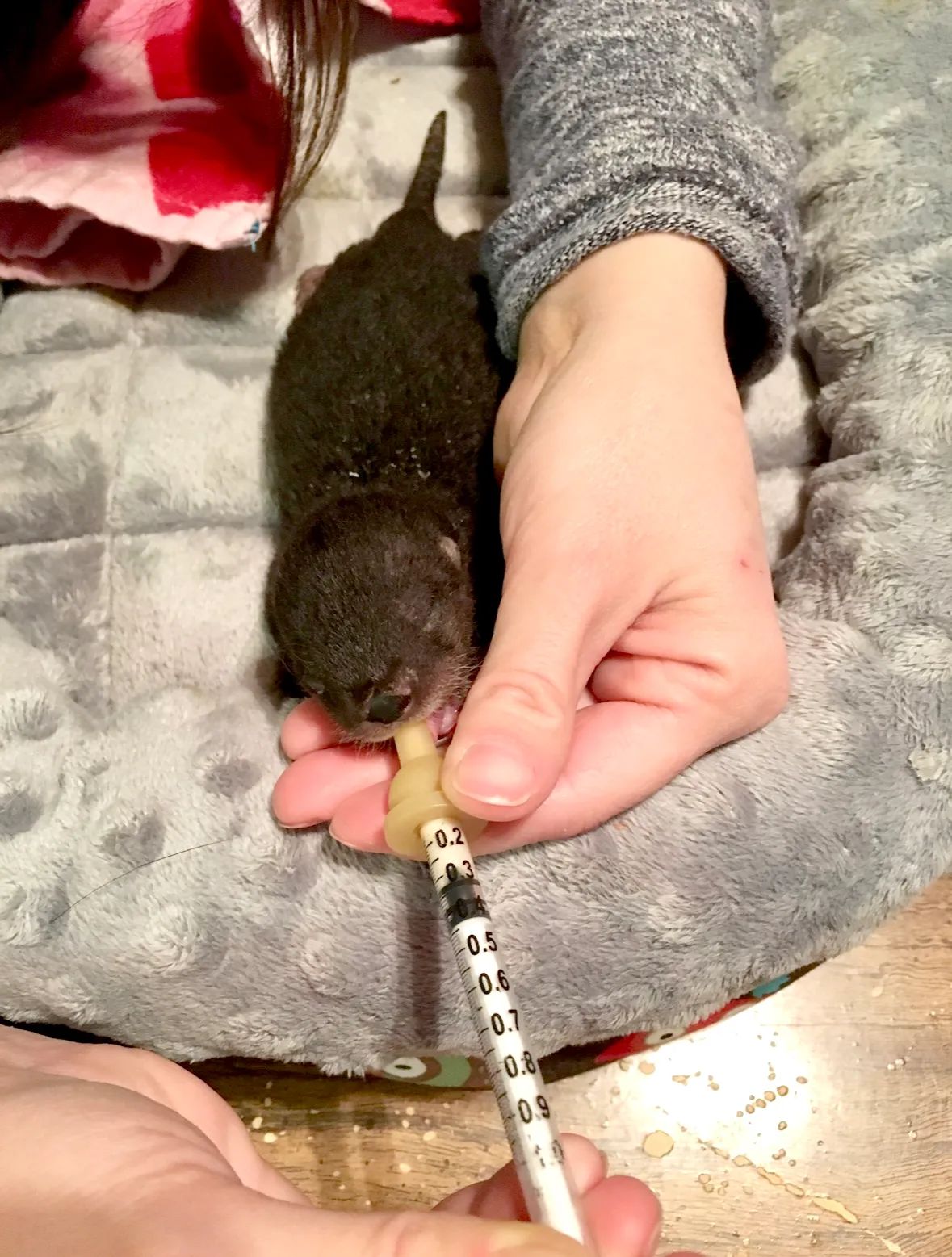
“Sam was my baby,” Amanda says. Her voice becomes animated and her face brightens as she talks about Sam. “He thinks I’m his mama.” While showing off a tattoo of Sam on her right forearm, Amanda shares the advice offered by a Denver Zoo caretaker with experience hand-raising an otter.
“Let him grow up to be an otter,” cautioned the caretaker. Amanda kept the advice close to her heart, knowing that someday, Sam would return to the zoo’s otter habitat.
Something Smells Fishy
By five months, Sam was weaned and introduced to a fish-based diet. Seeing Sam’s fondness for food, Amanda would reward him with a chunk of frozen fish when he rolled over, played dead or did other tricks.
“I smelled like fish for a long time,” Amanda says with feigned exasperation.
As plans were made to reintroduce Sam to the zoo full-time, Amanda found an unused zoo space she dubbed his “condo.” Worried that Sam would be lonesome, Amanda had many sleepovers in Sam’s “condo,” where he lovingly would burrow under her pillow as they slept.
By his first birthday, Sam met his otter dad, Ben. The visits confirmed that Sam knew he was an otter. The two yipped at each other and rolled around like old friends. Amanda hosted a first birthday party for Sam and she’s continued the annual celebration inviting ZooMontana personnel and friends.
Mia wasn’t as enamored with Sam when they were reintroduced. Amanda attributes the cool reception to gender differences and Sam’s male scent. Mia scolded Sam with loud yelping noises to “put him in his place,” but Mia’s since come around. She’s been spayed and Ben neutered. In six years’ time, Sam grew from four ounces at birth to six pounds at weaning, to weighing in now at 22 pounds.
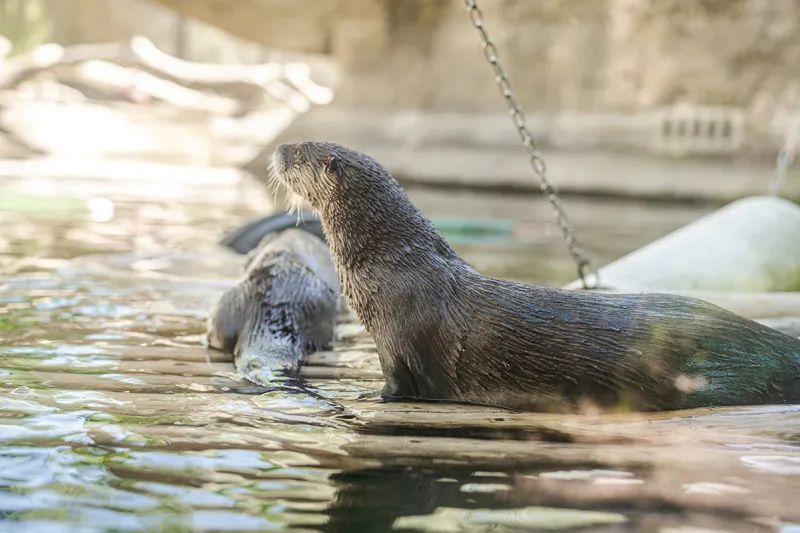
Still My Little Marshmallow
“Sam’s now the largest ZooMontana otter. He’s the otter alpha male,” Amanda says. “Often he doesn’t know his own strength. But, he’s still my little marshmallow.”
When the opportunity presents itself and the two are together, Amanda rubs Sam’s tummy and tickles his toes. He makes a giggling sound and rubs his face on her leg. While Sam can be “quite the show-off” for visitors, it's clear that for him, there’s no one like Amanda.
“I was told by several animal professionals from other facilities that our relationship was rare but also that once he hit 3 or 4 years old it would disappear due to sexual maturity,” Amanda says. “Well, at 6 years old he still bounces out of his skin when he sees me.”
“He is truly imprinted on his ‘mama,’” Jeff says of the pair’s relationship.
It’s evident the bond is mutual. Jeff remembers a brief discussion a while back about relocating Sam to another zoo. When Amanda heard the rumblings, she says she marched into his office.
“If Sam goes, I go!” Amanda remembers telling her boss.
“Quite emphatically!” he recalls, as he flashed his characteristic “ZooGuy” grin.
The subject of moving Sam has never come up again.
“We all love Sam,” Jeff says, “and are happy he is still here at ZooMontana.”
